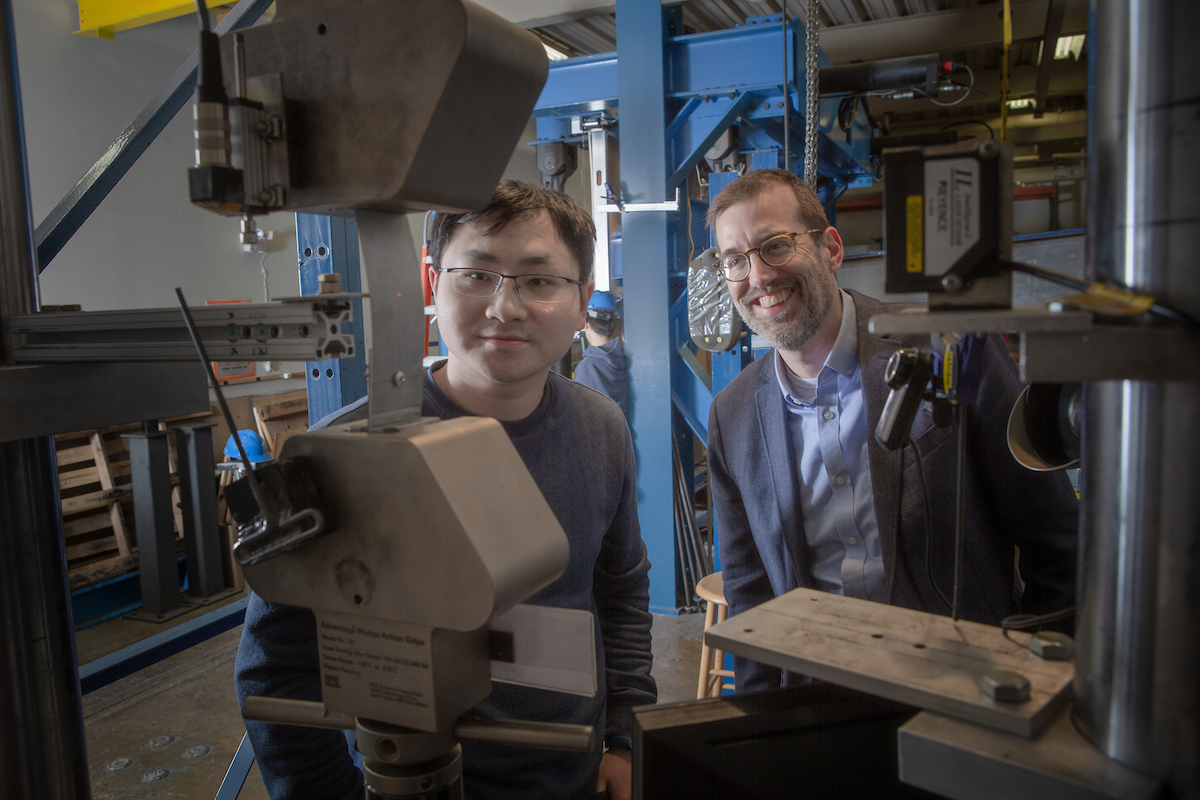Get Free Program Info
Brochure, application tips, open house invites, deadline reminders, and more!
We respect your privacy. Submitting this form constitutes your express written consent to receive emails, phone calls, text messages and/or other media from Johns Hopkins University at the phone number(s) or email(s) received, including a wireless number(s). These emails, texts, calls, or other media may be generated using automated technology. You may opt out of receiving any of these communications at any time. You are not required to provide this consent to receive services from Johns Hopkins University.
Nationally Ranked
One of U.S. News & World Report’s Best Graduate Programs of 2025
No App Fee and No GRE to Apply!
Apply by March 15 for Fall ’26
Choose The Path to Your Masters
Pursue a courses-only approach or conduct original research with a thesis.
Increase Your Earning Potential
Launch your career with the skills and alumni connections to help you succeed.
A Curriculum for the Future
Hopkins’ civil engineering master’s program isn’t just about buildings and bridges. Our faculty and students are creating smart and resilient cities, autonomous vehicle systems, renewable energy structures and systems, preserving historic structures, and improving community wellbeing. You can join them.
Integrating civil and systems engineering, we’ve built a department tackling society’s challenges, from building more resilient and safe infrastructure to fighting climate change through advances in renewable energy.
Coursework-Only
Option

Enjoy the academic freedom of taking a mixture of courses in machine learning and AI, natural hazards and urban resilience, structures and historic preservation, smart cities and transportation, and energy and public health systems.
Thesis-Based
Option
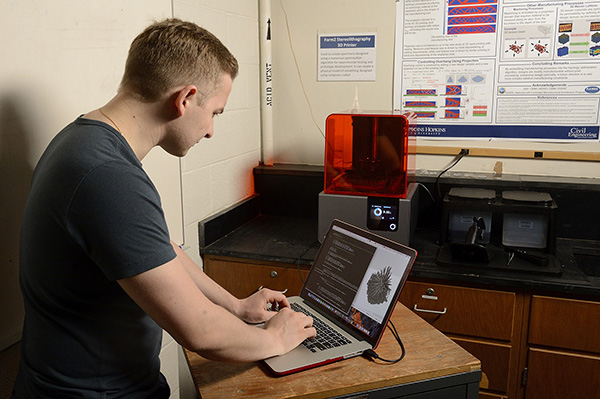
Combine coursework with a research-focused thesis on a specific topic in collaboration with faculty. *Approval required
Faculty
Mentorship
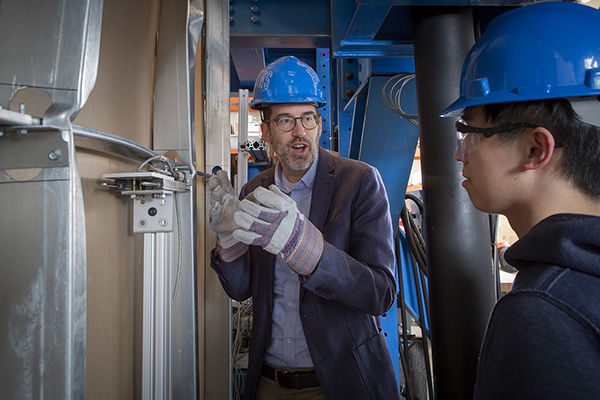
The Department of Civil and Systems Engineering is a close-knit environment with award-winning faculty who actively participate in your studies and cultivate your interests.
A Big-Picture Approach for Focused Solutions
Whether designing infrastructure that can withstand natural hazards, ultra-lightweight materials for space exploration, or green solutions for renewable energy, today’s civil engineers must address unique societal challenges with a creative and forward-thinking mindset.
The MSE in Civil Engineering at Johns Hopkins explores:
– Mechanics of Materials
– Probabilistic Methods
– Fire Engineering
– Earthquake Engineering
– Infrastructure Design Resilience
– Historic Structures
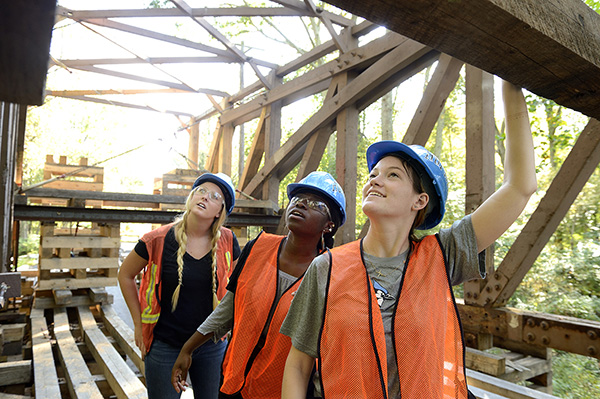
Faculty Feature:
Associate Professor Thomas Gernay
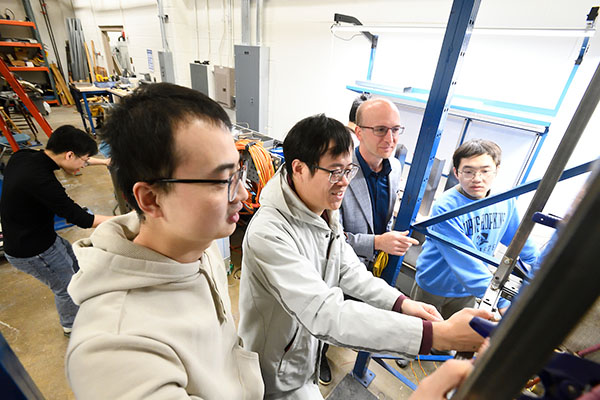
Co-creator of the SAFIR® software, used worldwide to model and predict a structure’s response to fire, Gernay is helping structural engineers, architects, and decision-makers create buildings that are better able to withstand man-made and natural threats.
Gernay was recognized with a NSF Early CAREER Award, the International Association of Fire Safety Science’s Magnusson Award, and the American Institute of Steel Construction’s Terry Peshia Early Career Faculty Award—all in 2023.
In 2024, Thomas was recognized with ASCE Maryland’s Outstanding Educator of the Year Award

Challenges at the frontiers of future infrastructure will require engineering innovation in order for society to thrive in a rapidly changing environment.

James Guest
Hackerman Family Department Head of Civil and Systems Engineering
Collaborate in Multidisciplinary Labs
Whether you are interested in researching structures optimized for sustainability and overcoming uncertainty or understanding emerging topics such as smart cities, architected materials and additive manufacturing, you can work with distinguished faculty who are addressing grand societal challenges through innovative civil engineering.
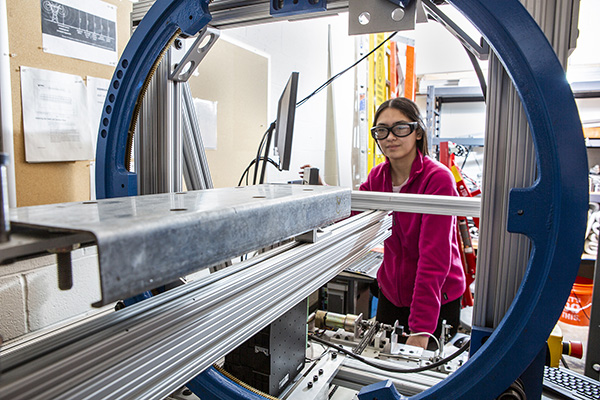
Prepare To Be in High Demand
Civil engineers with decision-making, leadership, and problem-solving skills are in high demand. With the world’s focus now on renewable energy solutions, civil engineers must oversee these projects from conception to execution. Employment of civil engineers will rise 5% between 2024 and 2034—faster than average—creating thousands of new opportunities across public and private sectors.
These sought-after industry positions include:
– Geotechnical Engineer
– Structural Engineer
– Transportation Engineer
– Risk Analyst
– Consulting Engineer
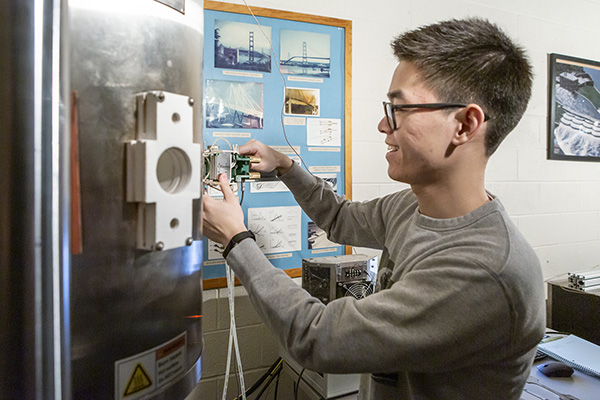
Join a Community Changing
the World for the Better
From the first supersonic ramjet engine to speech recognition software to cancer genome decoding, Johns Hopkins Engineering innovations contribute to the common good—and so will you!
Join us in our unwavering spirit of discovery with a master’s in civil engineering.
Request Free
Program Info
We respect your privacy. Submitting this form constitutes your express written consent to receive emails, phone calls, text messages and/or other media from Johns Hopkins University at the phone number(s) or email(s) received, including a wireless number(s). These emails, texts, calls, or other media may be generated using automated technology. You may opt out of receiving any of these communications at any time. You are not required to provide this consent to receive services from Johns Hopkins University.

© 2025 Johns Hopkins University. All rights reserved.
Contact Us
Johns Hopkins Whiting School of Engineering
3400 North Charles Street
Baltimore, MD 21218


